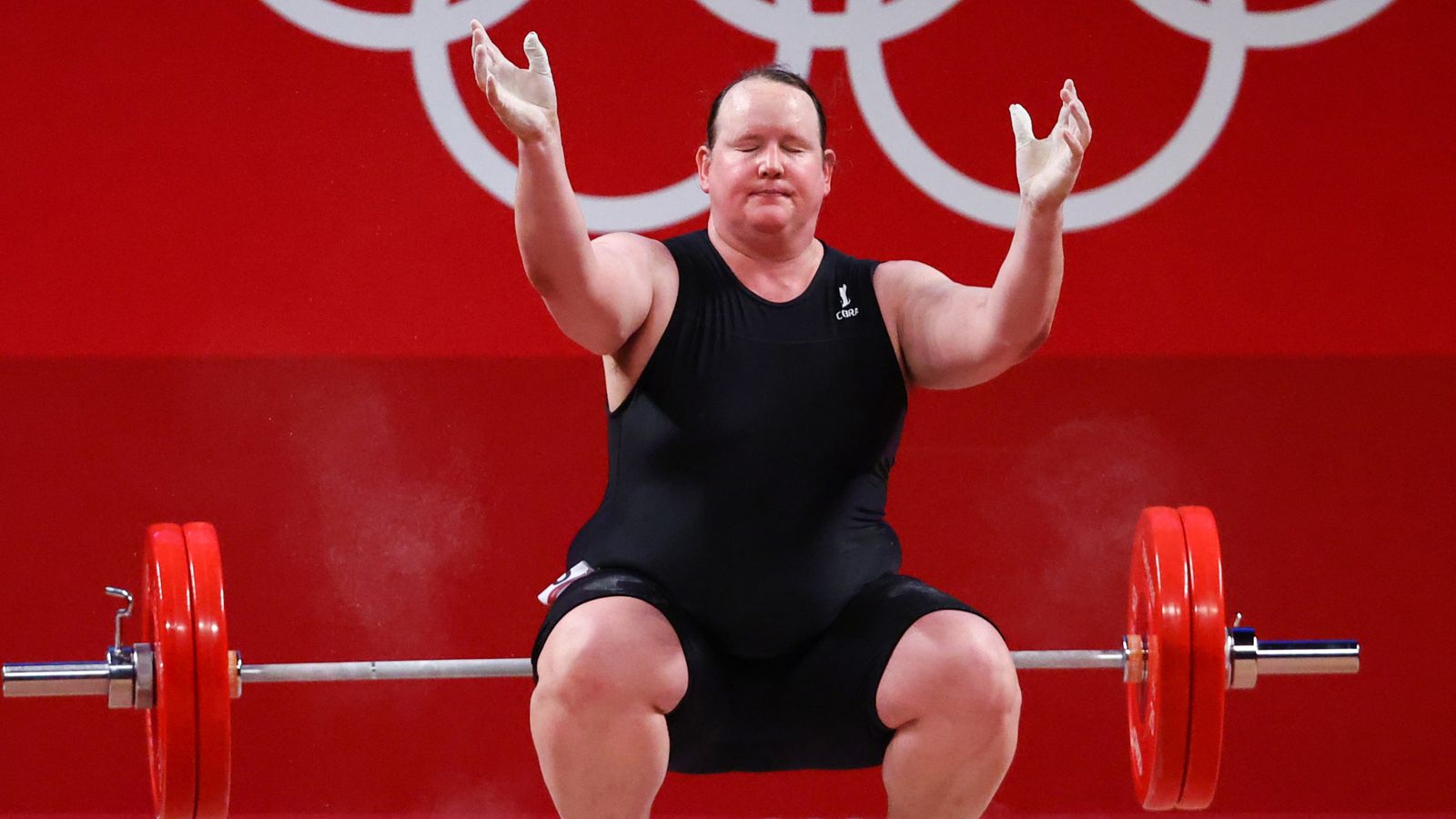New Zealand weightlifter Laurel Hubbard has made history by becoming the first transgender athlete to compete at the Olympic Games – but fell well short of a podium finish as she could not complete a lift.
Hubbard overbalanced on her opening weight of 120kg, taking the bar behind her shoulders.
Her second attempt of 125kg was ruled invalid on a majority decision by the referees.
The third try was similar to the first, ruling Hubbard out of medal contention in the women’s over-87kg division.
Hubbard’s controversial debut made her the first openly transgender athlete to compete in an individual sport in the 125-year history of the Games.
Upon exiting the competition, she said: “Of course, I’m not entirely unaware of the controversy which surrounds my participation in these Games.
“And, as such, I’d particularly like to thank the IOC, for, I think, really affirming their commitment to the principals of Olympism, and establishing that sport is something for all people. It is inclusive. It is accessible.”
She also thanked the International Weightlifting Federation, because “they too have shown that weightlifting is an activity that’s open to all of the people in the world,” as well as the people of Japan for hosting the Games during the COVID-19 pandemic.
She made a heart gesture to the audience with her hands as she left the competition arena.
The 43-year-old is almost twice the average age of her competitors and, having shifted 285kg during qualifying, was also one of the strongest in the field.
Athletes are eliminated if they fail to record at least one valid lift in each of the two parts of the competition.
Hubbard’s participation has been as divisive an issue as whether the Games should have even gone ahead during the global pandemic.
Ahead of the Games, Hubbard – ranked 15th in the world – praised organisers for allowing her to compete.
Critics have argued that her inclusion was unfair on other competitors and that Hubbard is naturally stronger.
Hubbard said ahead of her participation in Tokyo 2020: “The Olympic Games are a global celebration of our hopes, our ideals and our values.
“I commend the IOC for its commitment to making sport inclusive and accessible.”
Hubbard transitioned in 2012 and competed in international weightlifting for the first time in 2017 – and has been the focus of both support and criticism in the build-up to her first Olympics.
She met the qualifying criteria on levels of testosterone set by the International Olympic Committee (IOC), which revised its rules for trans athletes in 2016.
Before transitioning to female, Hubbard took part in male weightlifting competitions and set a junior national record in 1998, lifting 300kgs in the M105+ division.






















